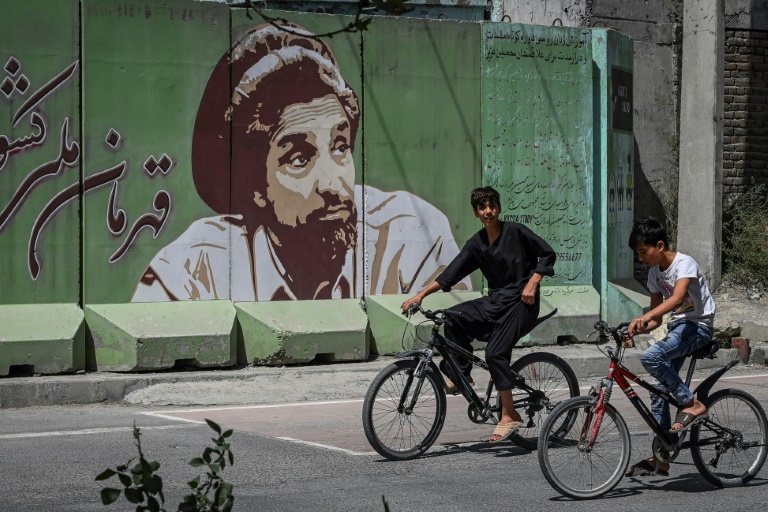In the streets of Kabul, it is difficult to miss Ahmad Shah Massoud — the revered guerrilla leader’s face adorns billboards, murals and even T-shirts not only in tribute, but also resistance.
His legacy as one of Afghanistan’s most towering figures endures two decades after he was assassinated on September 9, 2001, by Al-Qaeda, whose Taliban allies were trying to defeat Massoud’s forces.
He had become the most well-known commander in the country, successfully repelling the Soviet military in the 1980s and then the Taliban from his native Panjshir Valley.
“He is the hero of… Afghanistan,” Kabul resident Rashed, who gave one name, told AFP on the eve of Massoud’s death anniversary.
“He fought against the Russians and the terrorists and we will fight too. We follow his footsteps,” he added, standing in front of a large billboard bearing an image of Massoud wearing his trademark pakol hat.
Similar billboards and murals abound in Kabul, but less than a month after the Taliban took control of the capital, they are slowly being defaced, painted over, or removed.
Still, for sale at one shop in the capital this week were framed portraits of Massoud, as well as T-shirts with his face on them, similar to the ones popular around the world of Latin American revolutionary Che Guevara.
For many in Afghanistan, the legacy of Massoud — called the “Lion of Panjshir” by his devotees — is more important now than ever, with his bitter Taliban foes in control of the country once again.
As the group’s fighters patrolled Kabul, some residents invoked Massoud’s name as they vowed to stand up against the new regime.
“We… will commemorate (the anniversary) in the best way,” said Kabul resident Farid on Wednesday, describing Massoud as “Afghanistan’s national hero”.
Usually Panjshiris race around the capital in cars, firing guns in the air, but the capital was calm Thursday and there were no signs of his death being marked.
– ‘National hero’ –
A Panjshir resistance, led by Massoud’s son, rose as the Islamist group took over Afghanistan last month.
It remains the sole hope for many Afghans unhappy with the Taliban, even though the group captured the Valley this time around.
The Taliban have banned protests after recent demonstrations against their rule, forcing organisers to cancel marches scheduled for Thursday.
September 9 is also no longer a public holiday to honour Massoud after being cancelled by Taliban authorities.
The Taliban clampdown in recent days has not deterred his supporters, however.
Massoud “is a great personality and a national hero, he should be cherished by all people,” said a Kabul resident named Mutawakkel on Wednesday.
While enduring, the commander’s legacy is not universally positive in Afghanistan.
He is revered in Panjshir, across northern Afghanistan and in the ethnic Tajik community to which he belonged.
But for some in Kabul, there are painful memories of the 1990s civil war.
The conflict left Kabul in ruins, with international monitors reporting atrocities against civilians by the warring factions, including by Massoud’s men who were accused of indiscriminate firing on civilians and looting.










